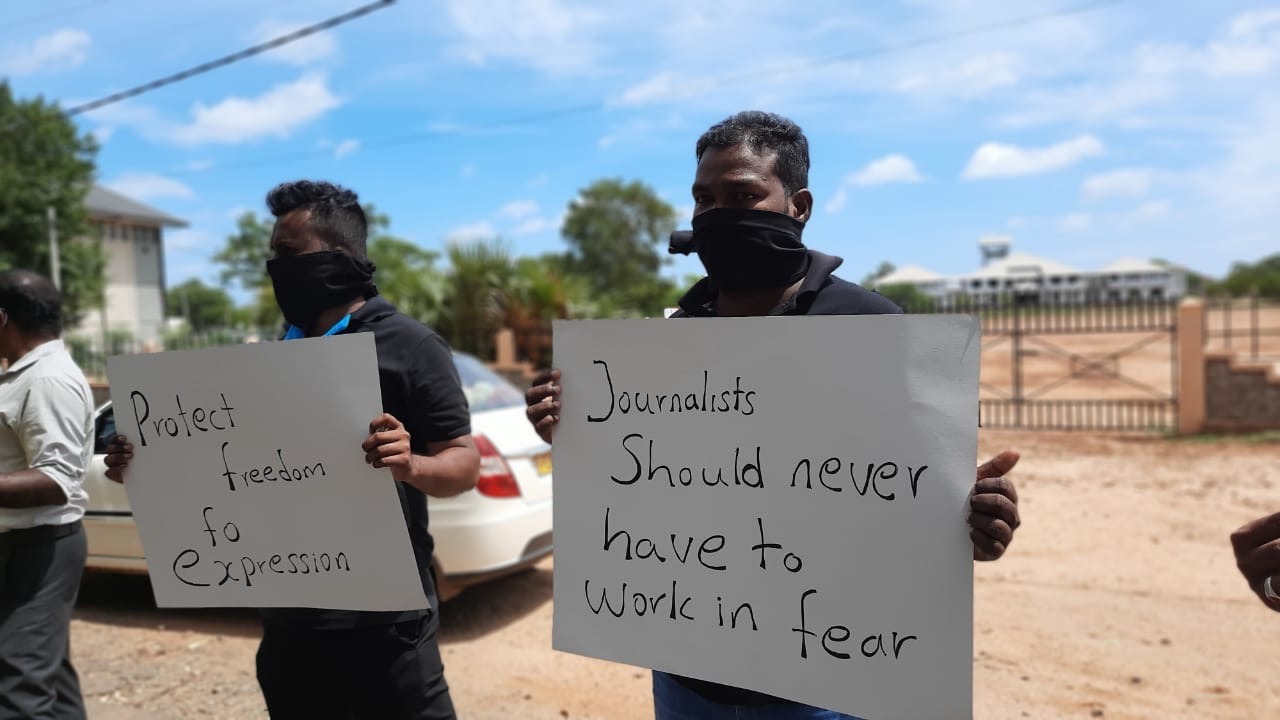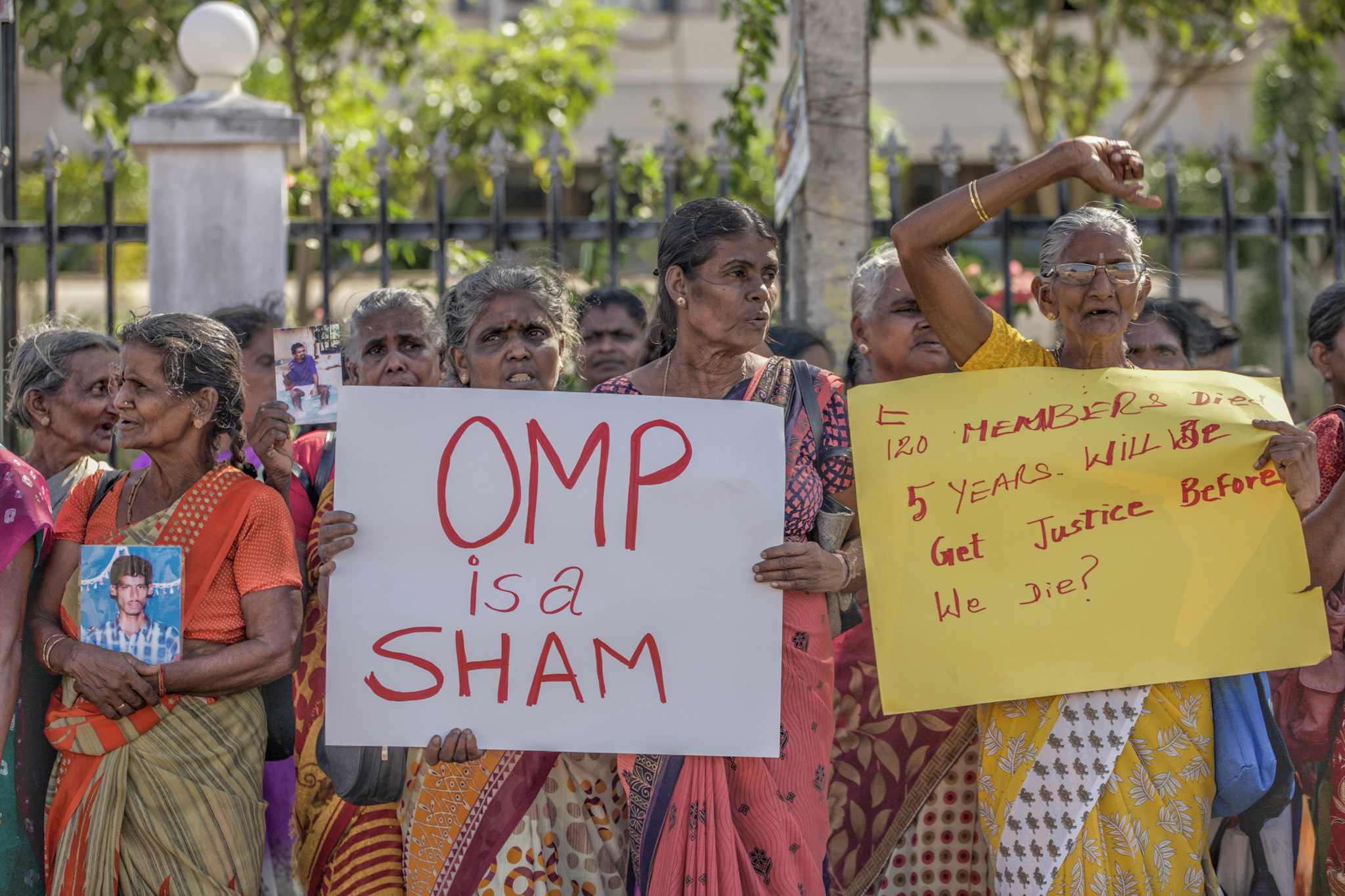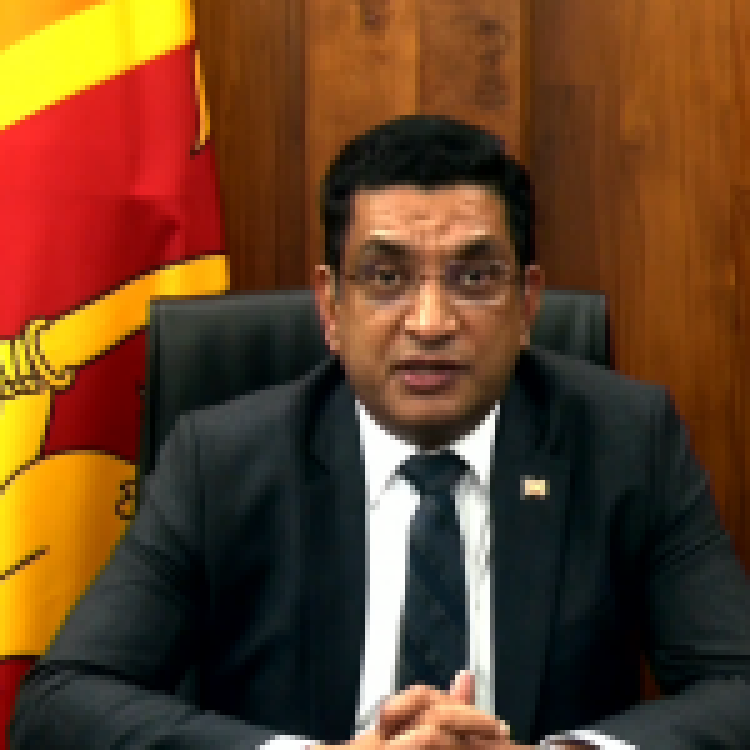
Ahead of Sri Lanka’s presidential elections, on 21 September, the Office of the United Nations High Commissioner for Human Rights (OHCHR) has released a damning report detailing the sexual abuse and intimidation of Tamil activists by Sri Lanka’s security forces; continued crackdowns on memorial activities across the North-East; and failure to advance accountability for human rights abuses committed.
Ahead of Sri Lanka’s presidential elections, on 21 September, the Office of the United Nations High Commissioner for Human Rights (OHCHR) has released a damning report detailing the sexual abuse and intimidation of Tamil activists by Sri Lanka’s security forces; continued crackdowns on memorial activities across the North-East; and failure to advance accountability for human rights abuses committed.
The report details that the OHCHR has received reports, as recent as January 2024, of arbitrary detention, torture, and sexual violence perpetrated against Tamils by Sri Lanka’s security forces, “mainly in Jaffna, Kilinochchi, Mannar, Mullaitivu, and Vavuniya”. They note that a clear pattern emerges of targeting and monitoring Tamils, “primarily men who had been involved in protests over disappearances, land/environmental rights or commemoration of war victims and were believed to be previously involved or linked with the Liberation Tigers of Tamil Eelam (LTTE)”.
Sexual violence
The victims describe being taken in the evenings or at night, blind folded and transported to a secret detention where they were interrogated for numerous days about their alleged affiliations with former cadre and attempts to “regroup the LTTE”.
“Many of the interviewees also reported experiencing sexual torture, including rape, squeezing testicles, forced nudity, biting of breasts, either during interrogation or in the holding cell. Victims described making up information or ‘confessing’ simply to get the treatment to stop, or signing blank papers or documents in Sinhala, a language which majority of the victims could not read”, the report details.
The report further details cases of intimidation and reprisals against family members of the families of the disappeared engaging with the UN. “Female victims in particular, reported receiving late-night calls from individuals claiming to be CID or TID personnel, who questioned them about their participation in protests and visits to Colombo or Geneva, including funding and individuals they had met”, the UNHCR details.
The report’s recommendations stress the need for Sri Lankan government to “publicly issue unequivocal instructions to all branches of the military, intelligence and police forces that arbitrary arrests, extrajudicial killings, torture, sexual violence and other human rights violations are prohibited and will be systematically investigated and punished”.
The report further calls on the Sri Lankan government to “order all security agencies and intelligence to immediately end all forms of surveillance and harassment of and reprisals against human rights defenders, journalists, victims of human rights violations and their families, especially women”.
The Sri Lankan government has responded to the charges by claiming that they have a robust domestic process which can deal with these charges.
Intimidating Tamil journalists and civil society actors

The report also documents “a persistent trend of surveillance, intimidation and harassment of journalists and civil society actors, especially those working on enforced disappearances, land seizures, environmental issues, and with former combatants” in the North and East.
The report details the cases of Tamil journalists Punniyamoorthy Sasikaran and Valasingham Krishnakumar who, in October 2023, were questioned for their coverage of the government’s land seizures. They received subsequent court orders, in November 2023, demanding the release of unedited footage of a Buddhist monk threatening violence against Tamils.
Regressive legislation
This fits in a wider concern within the report of regressive legislation aimed at stifling dissent. In discussing the Online Safety Act, the report warns that it “may result in the arbitrary targeting of anyone who may express dissenting or minority opinions or may be critical of the government’s actions”.
The OHCHR also raises concerns over the persistent use of Sri Lanka’s draconian Prevention of Terrorism Act and more recent legislation such as the Online Safety act and Anti-Terrorism Bill. They note that there is significant concern over “vague definitions of offenses, broad powers conferred on the authorities to enforce the laws, disproportionate penalties, and inadequate or absent judicial oversight”.
Crackdowns on memorials
The report also details that Sri Lanka’s Human Rights Commission has documented 46 cases of arrests and detentions under the PTA between January 2023 and April 2024. The OHCHR itself has received reports of at least 12 cases in the PTA was used to detain people, “primarily those participating or involved in organization of memorialization activities”.
The OHCHR highlights several commemoration events were disrupted in the East, including one in Trincomalee, in May 2024, in which four women were arbitrarily arrested for serving ‘kanji’.
The report not only condemns continued efforts by the Sri Lankan authorities to crackdown on memorial activities but encourages others states to “support memorialisation initiatives organised by diaspora groups outside of Sri Lanka”.
Pursuing accountability
Commenting on issues of accountability, the report notes that the “Government has rarely even acknowledged the serious violations that occurred in the conflict or provided victims with adequate redress”.
They further highlight that Sri Lanka has seen numerous commissions by successive governments but that they “have failed credibly to establish truth and advance accountability and reconciliation”. Additionally, they note that whilst the government in 2015 had committed to establishing a “judicial mechanism with a special counsel to investigate and prosecute these conflict-related crimes”, this has not been implemented.
The report examines several high-profile cases, such as the killing of five Tamil students in Trincomalee in 2006 and the murder of journalist Lasantha Wickrematunge in 2009, and details a pressing need to reform Sri Lanka’s Attorney General’s office “to ensure an independent prosecutorial authority, separate to the AG’s function, to be able to make independent prosecutorial decisions, including in relation to the cases of human rights violations”. Examining the few cases that progress to trial, the OHCHR notes that “there have been significant setbacks, which illustrate the oft-insurmountable barriers for victims to access justice even in the most emblematic of cases”.
Office of missing persons

In examining Sri Lanka’s Office of Missing Persons, the report notes that whilst the OMP has broad legal powers to investigate and summon individuals; it has instead “focussed primarily on assessing victim families’ entitlement to financial assistance, reducing ‘duplicate entries’ in their database and closure of files”.
“This approach puts the burden on families to provide additional information or evidence, which is often retraumatizing for victims” the report states.
Whilst the OMP has claimed to have established the fate of 16 missing persons, an earlier report from the OHCHR noted that the OMP "has not been able to trace a single disappeared person or clarify the fate of the disappeared in meaningful ways". It has been widely slammed by the Families of the Disappeared as a sham institution.
Land confiscation and restrictions on religion
Commenting on land confiscations, the report notes that whilst the government has claimed to release land but that this is complicated by: “changes to the physical landscape and destruction of landmarks; secondary ownership disputes; continued military presence, sometimes for economic activities; and practical difficulties with entering or utilizing released land as surrounding areas or access routes remained under military control”.
“In parallel, land disputes involving one or more State actors, including the Archaeology Department, Mahaweli Authority, Forest Preservation and Wildlife Preservations Departments, and police, continue to simmer”, the report details.
Additionally, concern is raised over the restrictions on religious worship practiced by Tamils. The report details that in March 2024, 8 devotees were arrested at Veddukkunaari temple, Vavuniya, whilst participating in the Shivaratri festival.
They further detail the dispute at Kurunthur Malai in Mullaitivu, in which a judge ordered the removal of an imposed Buddhist construction and subsequently found the Director-General of Sri Lanka’s Arcehological department was found in contempt of court. The judge was forced to resign his post in September 2023 following threats to his life.
Operation Yukthiya
The report makes a strong critique of the Sri Lankan anti-drug campaign knowns as Operation “Yukthiya” noting that by 20 May 2024 the government had arrested 121,957 individuals, the majority of which were “drug users or are drug dependent, but not drug traffickers”.
The Sri Lankan Human rights Commission details receiving 60 complaints over the operation, including 14 cases of torture. The report further slams the “disturbing rhetoric encouraging use of excessive force during the operations, coming from the Ministry of Public Security”.
They further raise alarm over the military’s engagement in drug operations noting that the military “continues to manage facilities like Kandakadu and Senapura, where reports of torture, ill-treatment and even death, alongside serious inmate conflict, have emerged”.
The report calls for the end of operation Yukthiya and release “all individual detained under this operation; provide community-based treatment, rehabilitation and harm reduction support to people with drug dependency; and develop and implement a human rights and public health centred drug policy in line with the International Guidelines on Human Rights and Drug Policy”.
Recommendations
The report concludes advising other states to consider using other international legal options to advance accountability and raises the ICC as a potential avenue as well as prosecutions under the principal of universal jurisdiction. They further detail the need for target sanctions on those implicated in human rights violations and for states to review their asylum measures to ensure that those from Sri Lanka are protected from “facing reprisals”.
They further called on the Sri Lankan government to avoid military involvement in law enforcement, commercial and civil affairs and significantly reduce military presence in the Northern and Eastern Provinces. Additionally, they called for the release of military held-land and the end to detentions under the PTA.
Read the full report here.

